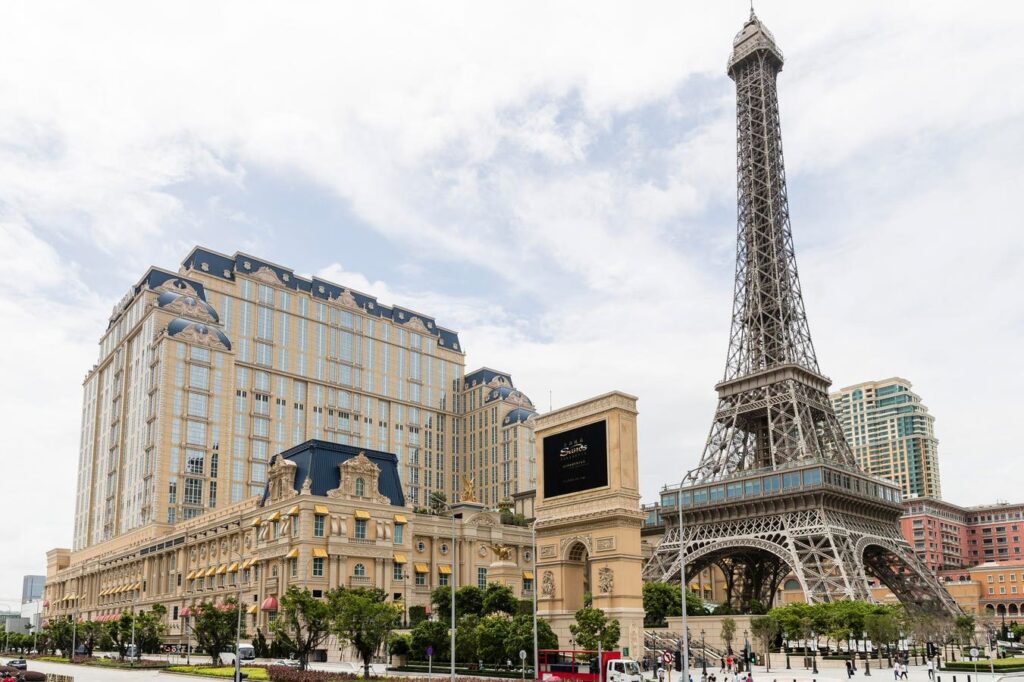Las Vegas Sands stock, a casino and resort company operating in Macau and Singapore, rose 8% on 26th September, as compared to a 0.4% increase in the S&P 500 index. LVS’s peer Wynn stock (NASDAQ: WYNN) was also up 8.20% on the same day. China has announced plans to inject approximately 1 trillion yuan (~$142 billion) into its largest state-owned banks as part of its stimulus measures. By making this strategic move, the banks will be able to support China’s struggling economy, which has been facing shrinking margins, faltering profits, and a rise in bad loans in recent years. The news sparked optimism among investors, leading to a surge in the Macau casino’s stock price.
LVS’ business in Macau largely collapsed in 2021 and 2022 due to strict Covid-19 restrictions that severely impacted tourist inflows to the region. Now the situation in the Macau gaming market has recovered considerably. Tourist arrivals at Macau have rebounded strongly and LVS and other casino players have witnessed sizable gains from the release of all the pent-up demand. Over the first half of 2024, the number of visitor arrivals increased by 43.6% year-over-year (y-o-y) to 16.7 million. However, visitation to the market remains well below the levels reached prior to the pandemic.
The decrease in LVS stock over the last 3-year period has been far from consistent, with annual returns being more volatile than the S&P 500. Returns for the stock were -37% in 2021, 28% in 2022, and 3% in 2023. In contrast, the Trefis High Quality Portfolio, with a collection of 30 stocks, is much less volatile. And it has outperformed the S&P 500 each year over the same period.
Why is that? As a group, HQ Portfolio stocks provided better returns with less risk versus the benchmark index; less of a roller-coaster ride as evident in HQ Portfolio performance metrics. Given the current uncertain macroeconomic environment around rate cuts and multiple wars, could LVS face a similar situation as it did in 2021 and 2023 and underperform the S&P over the next 12 months – or will it see a recovery?
In Q2, LVS’ revenue increased 8.7% y-o-y to $2.76 billion but landed $60 million short of the consensus expectation. Its consolidated adjusted property EBITDA was $1.07 billion compared to $973 million a year ago. The casino company said the Marina Bay Sands property delivered $512 million in adjusted property EBITDA during the quarter and Macao operations contributed $561 million. In addition, the company’s earnings per share came in at $0.55, up 20% y-o-y, but missed expectations by 1 cent. Its operating results reflect growth in Macao and Singapore businesses compared to the second quarter of 2023. On the balance sheet, LVS ended the quarter with unrestricted cash balances of $4.7 billion. The casino operator had access to $4.4 billion for borrowing under its U.S., SCL, and Singapore revolving credit facilities. Total debt outstanding at the end of the second quarter excluding finance leases and financed purchases was $13.7 billion.
It is helpful to see how its peers stack up. Check out how LVS’ Peers fare on metrics that matter. You will find other valuable comparisons for companies across industries at Peer Comparisons.
While investors have their fingers crossed for a soft landing for the U.S. economy, how bad can things get if there is another recession? Our dashboard How Low Can Stocks Go During A Market Crash captures how key stocks fared during and after the last six market crashes.
Invest with Trefis Market Beating Portfolios
See all Trefis Price Estimates
Read the full article here

